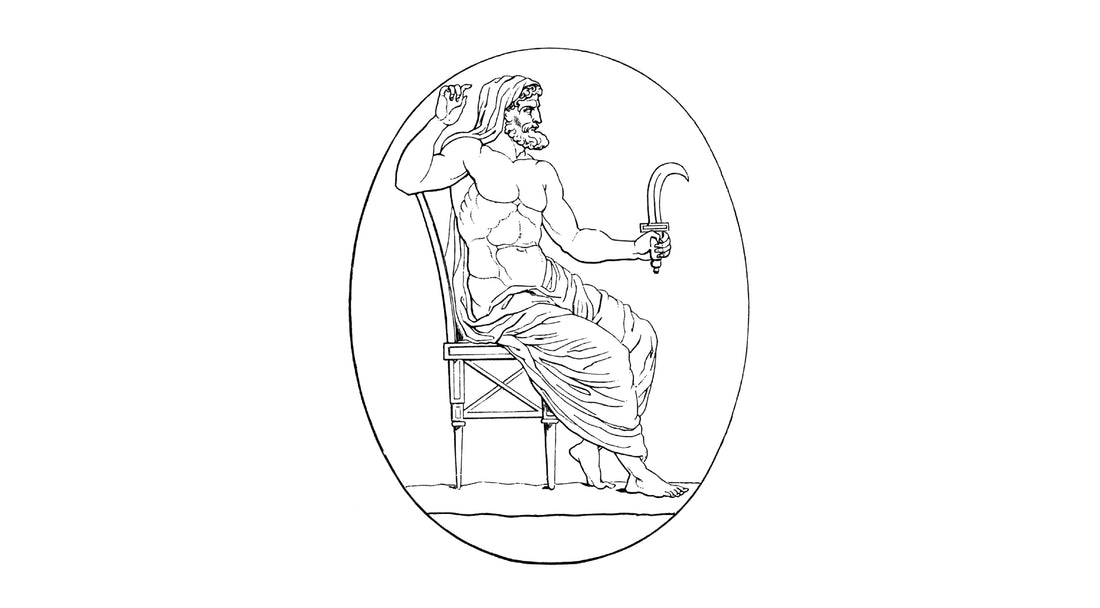
Kronos: A Glimpse into the Myth and Legacy
In the tapestry of Greek mythology, Kronos stands as a figure of immense power and complex narratives, embodying themes of time, kingship, and fate. The Titan god of time and harvest, Kronos's story is one of ambition, fear, and the inescapable cycle of time, offering a window into the ancient Greeks' understanding of the natural and divine order.
The Rise of Kronos
Kronos was the youngest of the Titans, the children of Uranus (Sky) and Gaia (Earth). Propelled by a prophecy that he would be overthrown by his offspring, Uranus hid his children in the depths of the earth. This injustice led Kronos to ally with his mother, Gaia, in a plot against his father. Armed with a sickle forged by Gaia, Kronos castrated Uranus, setting the stage for the rise of the Titans and his own ascension to power.
The Rule of Kronos
As king, Kronos established his reign over his siblings and the world. However, the same prophecy that had doomed his father now haunted him. To avoid this fate, Kronos swallowed each of his children with Rhea, his sister and consort, as soon as they were born. This desperate attempt to circumvent destiny only set the stage for its fulfillment, illustrating the Greek belief in the unavoidable nature of fate.
The Legacy and Fall
The cycle of time and retribution continued when Rhea, determined to save her youngest son, Zeus, tricked Kronos by giving him a stone wrapped in swaddling clothes to swallow instead. Zeus was raised in secret, eventually challenging and defeating Kronos, freeing his siblings from their father's belly, and establishing a new order with the Olympian gods.
Kronos and the Harvest
Beyond his role in these dramatic divine struggles, Kronos was also associated with the harvest, a testament to his control over time and the natural cycle of growth and decay. This aspect underscored the importance of agriculture in Greek life and the recognition of divine forces in the changing seasons.
The Enduring Symbolism
The mythology of Kronos serves as a reminder of the themes of power, the inevitability of change, and the cyclic nature of time. His story, marked by the rise and fall of divine rulers, reflects the human understanding of time's passage and the cycles of life and nature. Kronos's legacy, symbolized by the sickle, reminds us of the constant presence of time, shaping our lives and destinies.
In the modern imagination, Kronos's myth continues to inspire tales of time, harvest, and the complexities of fate, capturing the timeless essence of the stories that have shaped human culture for millennia.

